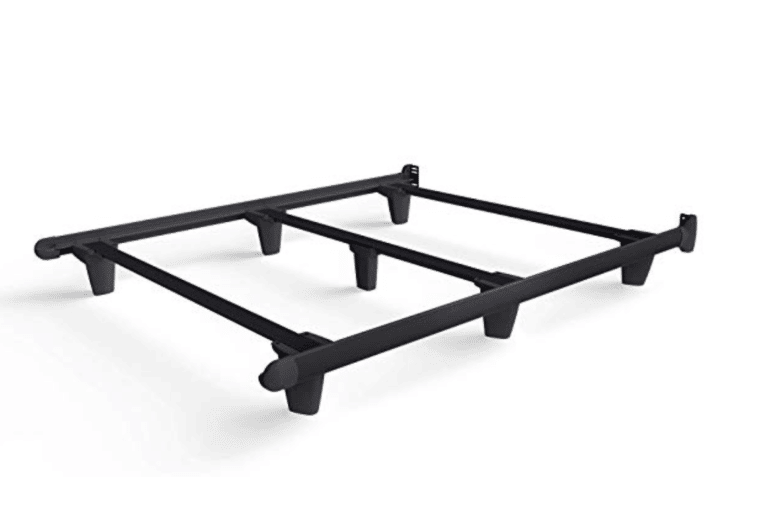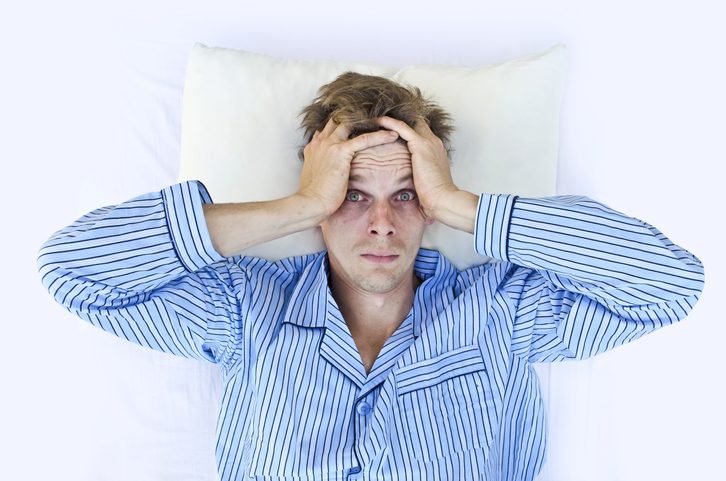
Sleeping troubles are common. Millions of Americans experience tossing and turning, waking frequently, and trouble falling asleep each night. These issues can begin to affect everyday life, influencing work performance, mood, and energy.
A disrupted or nonexistent sleep routine can become a medically defined problem, meaning it can eventually develop into chronic sleep disorders like insomnia. This can hinder anyone’s overall health and happiness, as sleep is essential to survive.
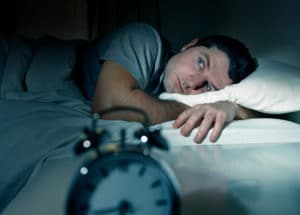
Deep sleep, including R.E.M., is one of the body’s only ways to rejuvenate the mind, store memories and information, and repair muscles and joints through proper circulation and hormone distribution.
When sleep patterns are halted or disrupted, a sleep deficit, or “sleep debt,” grows. This leads to issues like insomnia.
Short-term insomnia usually lasts for only a few days or weeks but can often result from stress-related instances or a minor or moderate change in routine or schedule. It can also be caused by changes in surroundings, like lighting or temperature. Whether short- or long-term, when not addressed in a reasonable amount of time, insomnia can lead to other health issues.
To properly diagnose chronic insomnia, a medical professional can help you distinguish whether you may have acute version insomnia or long-term chronic insomnia disorder.
Insomnia can be self-diagnosed or pinpointed by a medical professional. These are the common symptoms to look for:
There are several attributes used to diagnose the severity of an insomnia case:
Napping too often during the daytime hours can be a major hindrance to a healthy sleep routine. Especially later in the day, naps can prevent the ability to feel tired in the evening when it is time to sleep. This leaves your body less time for a rejuvenating slumber cycle when you need it most and causes an increased sleep debt. This perpetuates the disruption of the sleep cycle.
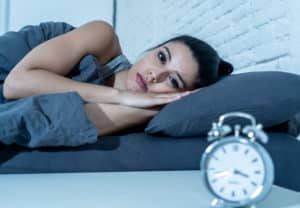
A nap isn’t always a bad thing, but it must be taken during the proper time of the day for the right amount of time. Regular napping to catch up on sleep can become a bad habit that will only intensify the cycle of feeling tired or worn out from insufficient R.E.M. sleep.
Though not always the cause of sleep issues, insomnia is often associated with anxiety and depression.
There are other common causes of sleep disorders like insomnia:
Symptoms similar to sleep disorders can be caused by medical conditions and can provoke conditions like insomnia:
Several considerable aspects can seriously affect your ability to stay asleep and fall asleep in a reasonable amount of time. Studies have concluded that it should take approximately fifteen minutes to fall asleep. If you fall asleep “as soon as your head hits the pillow,” then you are likely sleep deprived. Common factors that will improve your sleep environment:

There are a number of factors involved in getting a good night’s sleep, and some may find it easier to achieve a successful night’s sleep than others. Those with insomnia or sleep disorders should seriously consider upping the ante by shaping the ideal sleep environment and keeping a healthy bedtime routine. Here are a few actions you can take to help your body wind down and manage stress before going to sleep:
Some people are more susceptible to insomnia than others. You have a considerably higher risk of developing insomnia if:
There are a wide variety of sleep disorder treatments available today. Some treatments practice more natural and holistic options than others. The proper remedy for you can also depend on the cause of your sleep deprivation.
Modifying your daily habits can drastically reduce insomnia symptoms. Practice healthy habits, like exercising at least 30 minutes daily or eating beneficial foods rich in melatonin. For an improved diet that assists with a peaceful slumber, try increasing your intake or introducing these foods:
A pro tip: Don’t overeat before trying to sleep. Eating right before bed can provoke acid reflux which can cause unwanted awakenings.
When functioning correctly, your body has a natural circadian rhythm based on the sun’s rhythms, precisely darkness and light. Melatonin should be naturally released to help you feel sleepy when the sun goes down or if it gets dark. Serotonin production during the daylight hours allows you to feel awake in the morning.
Sleep aids that contain compounds like melatonin, glycine (amino acid said to promote higher levels of serotonin), or C.B.D. supplements to induce sleepiness are available. Medications like Ambien, classified as a sedative-hypnotic, can be prescribed by a doctor to help you fall asleep. A word of advice from sleep specialists, though: The best and least risky way to improve your sleep quality is by enhancing what your body is capable of doing on its own. Introducing tools, like natural sleep aids, to encourage a natural improvement in your overall comfort and sleep ability is often the best way to start.
Unfortunately, prescription sleep aids can be habit-forming. They often have more risks or side effects, like daytime grogginess, that may not be worth it in the long run. Before using medication to sleep, speak with your doctor about introducing these natural remedies:
Let’s face it, that old mattress you’ve been thinking about replacing for the last few months now isn’t going to cut it anymore. If you’re already having trouble sleeping, an old or uncomfortable mattress can be one of the biggest hindrances to getting the good night’s sleep you need. Unlock better nights of sleep with a high-quality mattress that suits your body.
A mattress should support your sleep style and fit your curves. Tossing, turning, and waking up throughout the night can be easily reduced by accomplishing even body-weight distribution from your sleep surface.
The bottom line is that your mattress matters!
It is a crucial factor in getting that rejuvenating sleep you desire, and it can help improve insomnia symptoms. A mattress is an investment, so don’t compromise when it comes to where you sleep, especially if you have physical ailments or sleep disorders like insomnia.

The comfort of a mattress can vary from person to person. The need for different comfort levels depends on body size, sleep position, and the number of sleepers in the bed. Some prefer a firm surface, typically back sleepers or those with larger bodies. Some need a soft surface, generally side sleepers, arthritis and fibromyalgia sufferers, and petite body frames.
A mattress is designed to evenly disperse body weight to eliminate or reduce pressure on your pressure points. A mattress that fits you appropriately will provide a floating sensation because it offers proper support and pressure relief on the hips, shoulders, and lower back.
Traditional and hybrid mattresses use independent support coils that serve as a means for spinal alignment, support responsiveness, and breathability. Polyfoams, latex rubber, and visco foams add extra means for weight distribution and comfort. Layers of materials closer to the surface are “comfort layers” that create a surface feel to allow your muscles to relax while relieving pressure from your body weight.
Stearns & Foster Estate Mattress
Best for:
Sealy High Point Hybrid Mattress
Best for:
Southerland “The Hathaway Collection” Diamond Peak Latex Hybrid
Best for:
Some bodies will prefer a mattress without coils because there is little to no bounce element, compared to a mattress with a traditional innerspring. Mattresses without coils are best suited for sleepers who have opposite sleep schedules or for those who wake up easily when their partner moves.
Best for:
Latex mattresses are best for larger individuals, hot sleepers, and those who may not like the enveloped feeling of memory foam.
Posh + Lavish Reawaken Latex Mattress
Best for:
When your muscles relax, your mind will follow. Sleep will become easier. Start with a comfortable mattress, healthy lifestyle habits, and a calming bedtime routine to help kick insomnia to the curb.
Sleep specialists at Mattress World Northwest showrooms will help guide you to the best mattress for you and answer any questions along the way. As a local and family-owned business, there is honor in helping our community sleep better, feel refreshed, and relieve the dreaded symptoms of insomnia.
While you can't go wrong with any of our mattresses, here are a few factors you'll want to consider before making a purchase: your sleep position (and if you have a partner, theirs as well), the size of the space, and a price point. If you have any questions, rest easy knowing that our team is happy to help you find that perfect fit.
| Size | Dimensions |
|---|---|
| Twin | 38″ wide x 75″ long x 9.25″ tall |
| Twin XL | 38″ wide x 80″ long x 9.25″ tall |
| Full | 54″ wide x 75″ long x 9.25″ tall |
| Queen | 60″ wide x 80″ long x 9.25″ tall |
| King | 76″ wide x 80″ long x 9.25″ tall |
| Cal King | 72″ wide x 84″ long x 9.25″ tall |
| Split King (2pk) | 38″ wide x 80″ long x 9.25″ tall |
Mattress World Northwest makes it easy to choose the right foundation for your space and lifestyle.
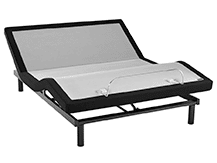

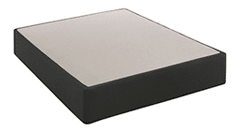
Reliable support for your boxspring and mattress.
